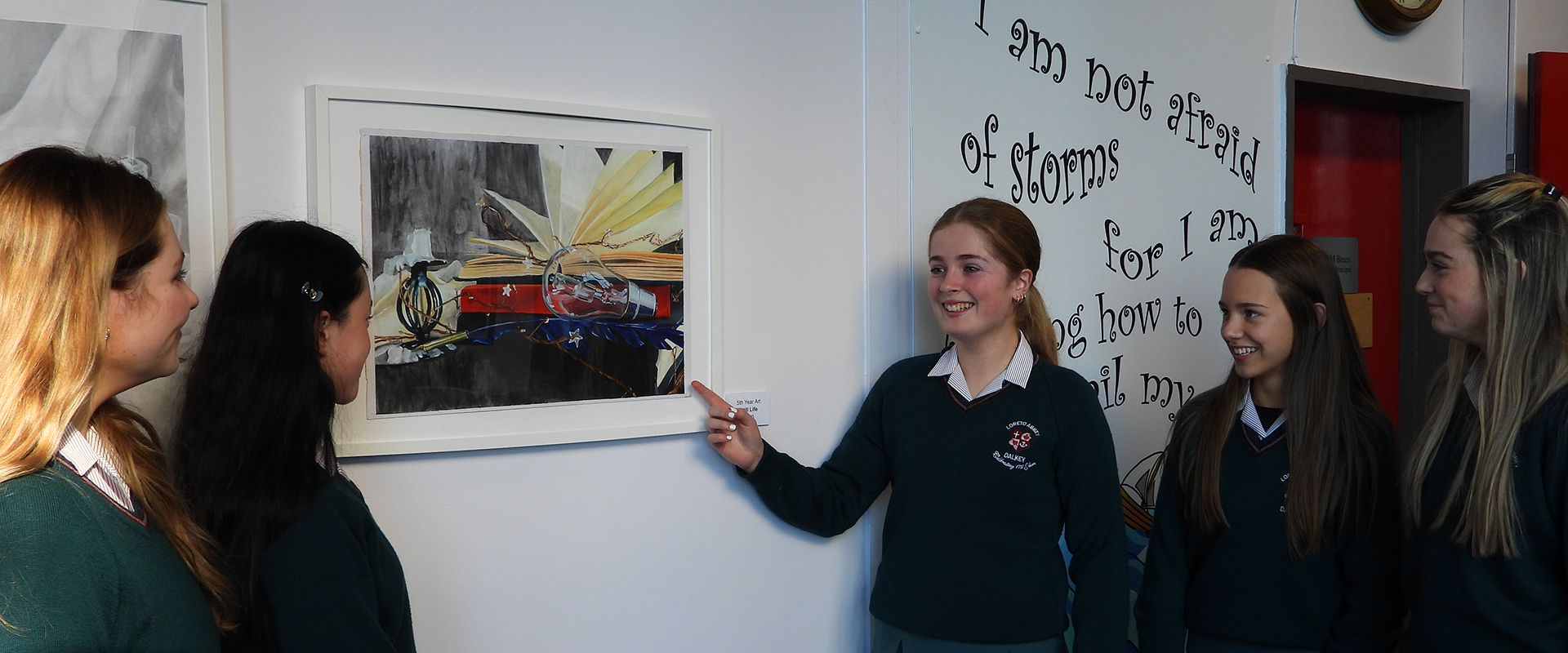
The fees for 2025-2026 are €5,200 per annum. A full fee is not expected in September, but can be settled using direct debit over a 9-month period.
Approximately a 125 pupils are accepted into First Year. Places are allocated according to our Admissions/Enrolment Policy which is available on our website. Pupils are divided into 5 groups of 25 each. Each class has a tutor teacher with special responsibility for her/his class. A Year Head has responsibility for the entire First Year. In addition each First Year pupil is appointed a “Cara” or friend who is a member of Sixth Year and who will take on the role of older sister to her charge, to ease the settling in process.
Pupils are placed in classes at random. When a number of pupils from the same primary school enter the school together, an effort is made to place at least two in the same class. It is not possible, however, to guarantee that particular friends will be in the same group. Pupils are urged to mix freely and to make a number of friends in their new school.
Entrants from 2020/21 will study for the new Junior Cycle Student Award. Subjects on offer include English, Irish, Maths, History, Geography, Religious Education, Science, P.E., French, German, Spanish, Home Economics, Business, Art, Music and I.T.
In First Year all classes are of mixed ability.
From Second Year onwards, classes in Mathematics and Irish are “set” i.e. pupils are graded according to ability and classes of all levels run concurrently to enable movement when necessary. Levels are decided based on performance during First Year.
If a pupil has a known learning difficulty, the school should be advised of this, so that learning support can be provided. Tests administered by the school during First Year may pick up difficulties undetected until this point. Should this happen parents will be advised accordingly. Learning support may necessitate a pupil’s withdrawal from class for individual or small group tuition.
Our Guidance Counsellors are available for all students and a comprehensive guidance and counselling programme is an integral part of the school’s curriculum. Guidance Counsellors meet all First Year students.
First-year students are encouraged to play a sport. While P.E. is part of the curriculum, sports take place after school and/or on Saturday mornings. Hockey and basketball are the two most popular sports in the school, and table tennis, athletics, and soccer are all available in season. The new Sports Hall allows us to increase the number of sports activities on offer. Rugby and GAA are also offered.
First Year pupils are encouraged to involve themselves in a range of extra-curricular activities.
We offer:
Pupils with musical ability are encouraged to join one of our musical groups. While choir is part of the curriculum, we also have a Special Choir, which competes in the All-Island School Choir Competition and an Orchestra. Additionally, members of the Folk Group meet at lunchtime on a voluntary basis.
Supervised study is available until 6 p.m. or 7 p.m. according to choice. However, since the longer school day combined with a variety of new subjects often proves tiring for First Years, they are not encouraged to stay for supervised study, except when exceptional family circumstances dictate it.
All pupils other than Sixth Years remain in school for morning break and during lunch. Pupils are encouraged to bring healthy food and drink for break times. Microwaves are available. Our lunch service is offered by Food Village. They offer a range of hot and cold meals and snacks that can be pre-ordered/purchased at breaktime and lunchtime. More information can be found at www.foodvillage.ie
Classes begin at 8.45 a.m.
There is a short break from 10.45 to 11.00 a.m.
Lunchtime runs from 13.00 to 13.40.
School finishes at 15:40 on Monday, Tuesday, Thursday and Friday.
On Wednesday, classes finish at 13.00
Every pupil has a journal which provides for a brief correspondence between teachers and parents. Formal Parent/Teacher meetings are held once a year. Written reports are issued each term. A Newsletter is circulated approximately weekly. The website contains updated information on the school.